
Future-proofing your EU funding strategy for the post-2027 period
Preparing for EU funding for the post-2027 period? Learn what organisations can do now to align with policy shifts, build partnerships and strengthen readiness.
The LIFE Programme is the EU’s dedicated funding instrument for environment and climate action. To date, LIFE has already co-financed thousands of projects across Europe, promoting environmental protection and sustainable development.
If you are an environmental organisation considering applying for the first time, the application process can feel complex at first glance. This article provides an overview of the LIFE Programme, common challenges for first-time applicants and practical guidance to navigate the process successfully.
The LIFE Programme is structured into four sub-programmes:
Nature and Biodiversity: Focuses on halting and reversing biodiversity loss, and supporting the EU’s Biodiversity Strategy for 2030.
Circular Economy and Quality of Life: Targets waste reduction, air and water quality, as well as measures to protect, restore and improve the environment.
Climate Change Mitigation and Adaptation: Aims to reduce greenhouse gas emissions and build climate resilience.
Clean Energy Transition: Supports the shift toward renewable energy and increased energy efficiency.
Projects can range from pilot and demonstration initiatives to best practices and policy solutions. The programme is open to public bodies, NGOs, businesses and other entities based in EU Member States or countries that have association agreements with the LIFE Programme.
Within the LIFE Programme, projects can be implemented by multiple partners, or by single beneficiaries.
For more detailed information about the EU LIFE Programme’s structure and the types of projects you may also refer to my previous article “Applying for project funding from the LIFE Programme”.
For environmental organisations and other entities working in the environment and climate field, LIFE offers a remarkable opportunity to advance conservation work, support ecosystem restoration, foster circular economy initiatives and scale community-based solutions to environmental challenges.
LIFE funding can help your organisation to:
In short, LIFE funding can help your organisation to deliver impactful, solution-oriented environmental projects with a European (or even global) relevance.
Despite its benefits, preparing a LIFE proposal for the first time can be overwhelming. These are some typical hurdles environmental organisations often encounter:
Being aware of these challenges will help you address them effectively and begin your application in a clear, structured way.
Once your environmental organisation is ready to apply for funding through the LIFE Programme, follow these key steps to help you prepare:
When you begin writing your proposal, keep the following principles in mind:
Applying for the EU LIFE Programme for the first time can seem complex, but it is also an opportunity to implement your project idea, strengthen your strategy and connect with a broader European community of environmental actors. With the right preparation, guidance and mindset, first-time applicants are well-positioned to succeed.
Would you like to get support with your LIFE application? Don’t hesitate to contact me to get to know the different options.
You would like to be informed when any new blog articles have been published? Sign up for the EU Funding News & Tips.

Author: Astrid Mechel
https://eufundingconsulting.eu
Hello, I’m Astrid Mechel and I’ve been working in EU funding and policy for over 20 years, supporting organisations in securing grants across various fields – from social inclusion and environmental sustainability to research and innovation. Through workshops, trainings and hands-on support, I’ve helped many small and medium-sized entities – including nonprofits, public bodies, and companies – take their first confident steps into the EU funding landscape, and apply for EU grants.
Read more articles here:

Preparing for EU funding for the post-2027 period? Learn what organisations can do now to align with policy shifts, build partnerships and strengthen readiness.

EU project funding for nonprofits: Discover 6 misconceptions that hold organisations back and how to turn them into opportunities for growth and impact.

Applying for EU funding can be a complex and challenging. This article offers 12 practical tips to help you avoid the most common stumbling blocks.
Online Workshop
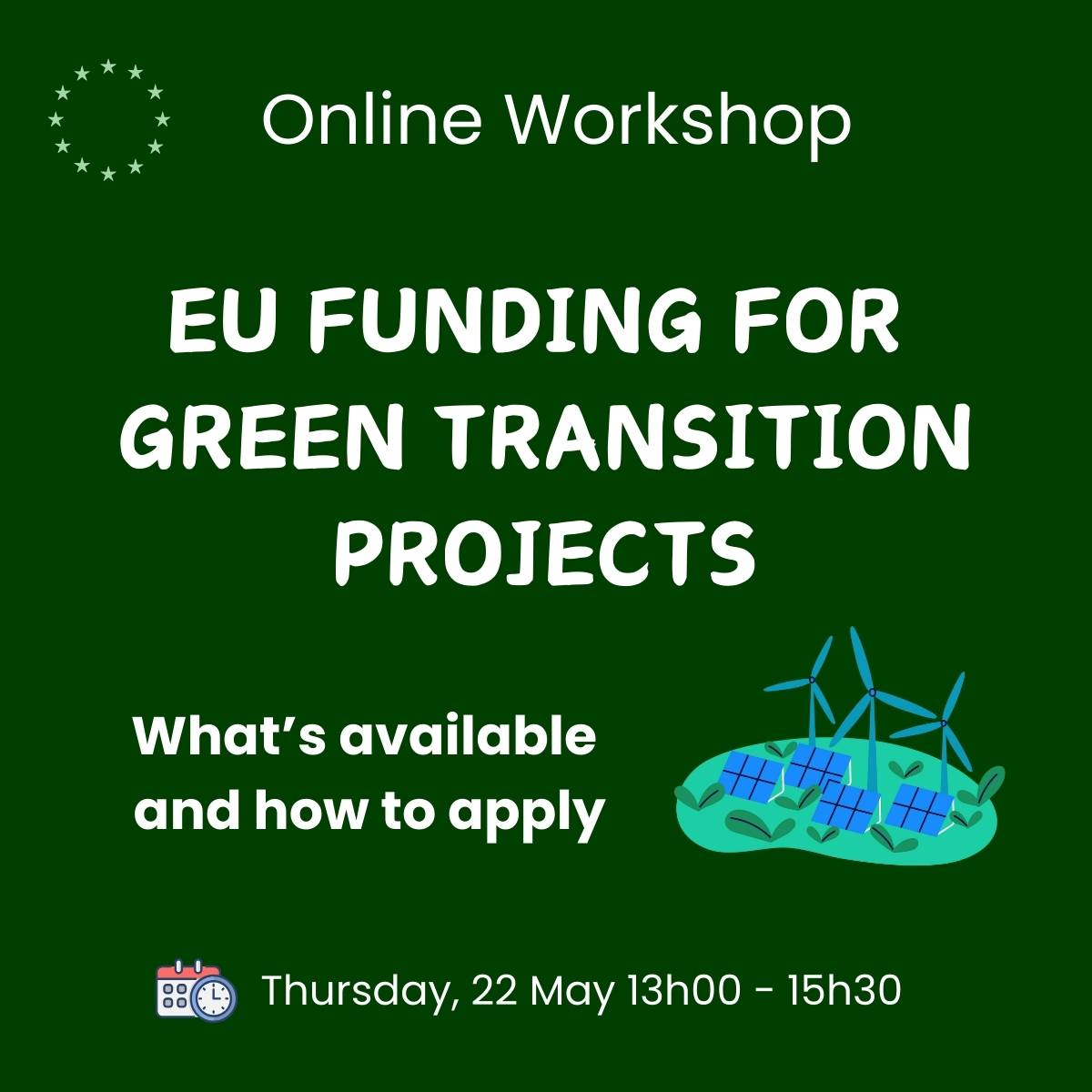
Interactive Live Workshop
On 22 May 2025 from 13h00-15h30
Registrations are closing soon
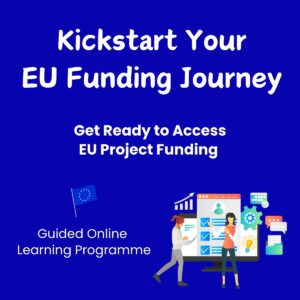
Curious about EU funding and how it could support your next project? Join the new live programme round for a compact and easy-to-follow way to get started with EU funding.
Key Terminologies – Application Guidance

This guidance compares and compare and clarifies the 10 key terminologies within an EU funding application. How should you address them in your proposal, and what kind of information belongs to which one of them?
Online Workshop on 6 November!
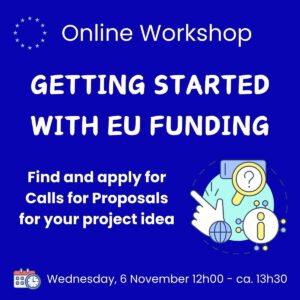
The workshop “Getting Started with EU Funding” is for participants with no or very limited experience in EU funding. Discover what kind of projects the EU is funding, the requirements and how you can apply for funding in your thematic field.
EU Funding Checklist
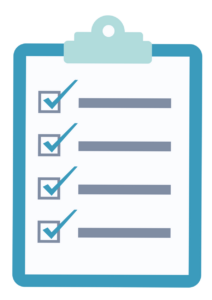
Do you have a new project idea and are wondering if EU funding could be available for your project?
This checklist will guide you through the most important questions to be considered when applying for EU project grants and includes some further suggestions how you could adapt your concept to be more in line with EU expectations regarding fundability.
Get the brand new upgraded guidance booklet (free offer):
Your compact guide on how they work and how your organisation can apply for funding
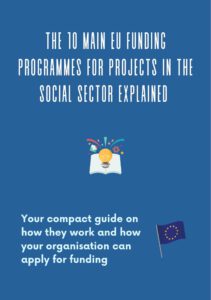
Find out which 10 EU programmes offer grants for projects in the social sector, what the conditions for funding are and how you can apply.
Online Workshop
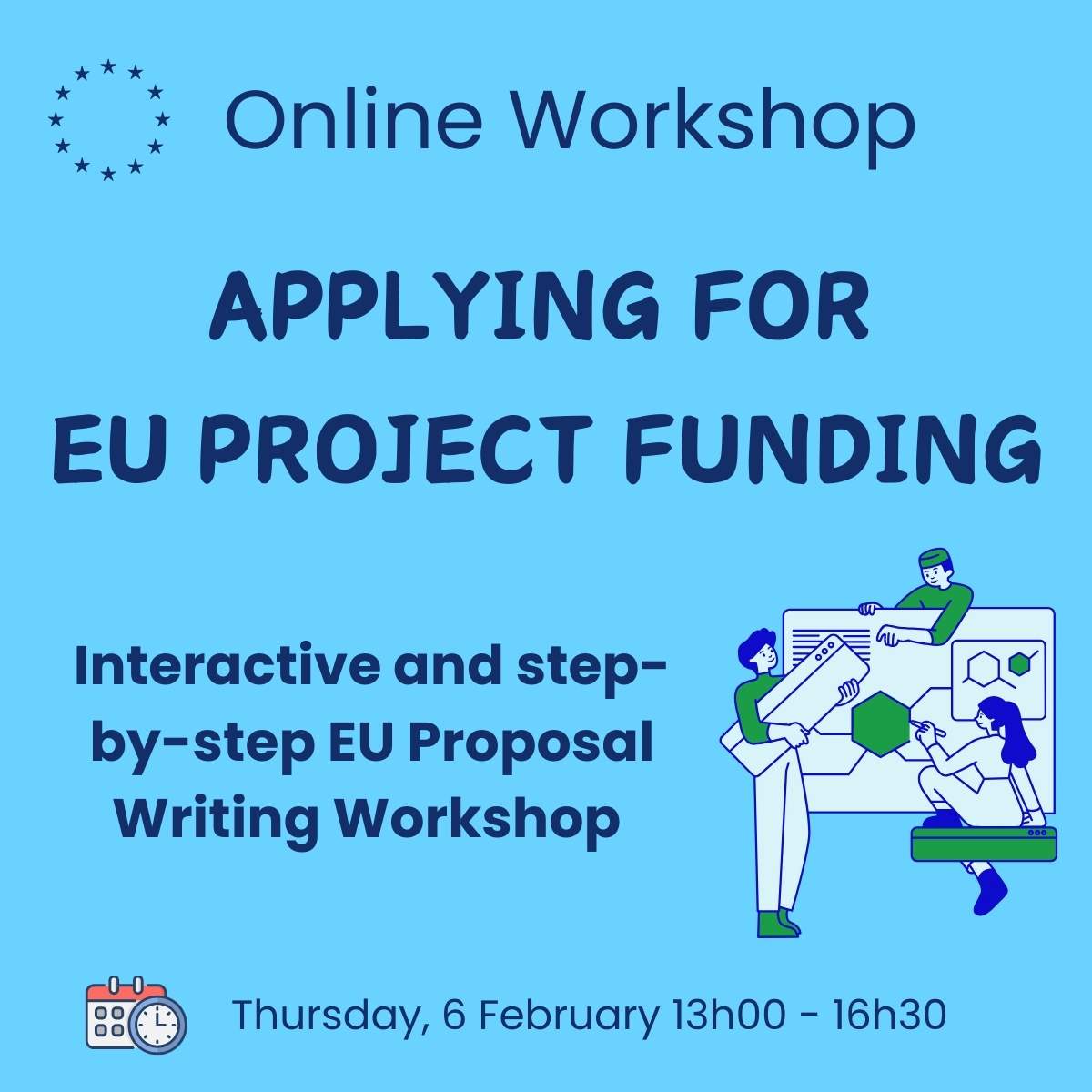
Interactive and step-by-step EU Proposal Writing Workshop
On 6 February 2025 from 13h00-16h30